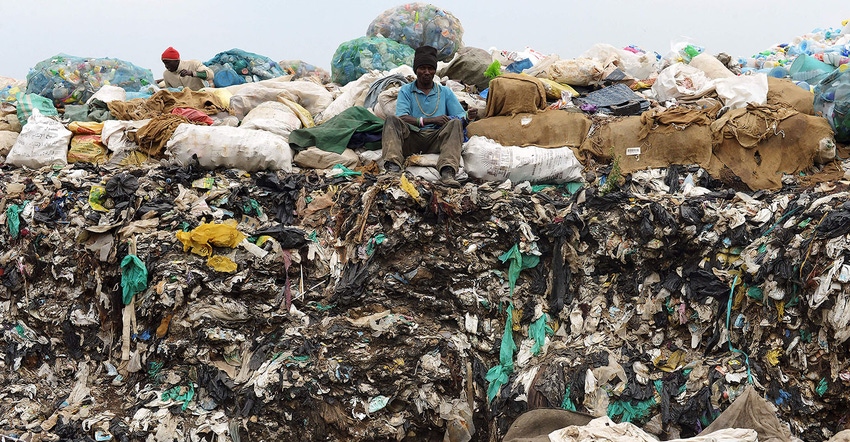Kenya’s 'Groundbreaking' Plastic Bag Ban Has a Problem
Heralded as a model for the world when it was launched in 2017, the plastic bag ban has faltered as smugglers from neighboring countries step in to meet demand.
August 11, 2023

Longtime PlasticsToday contributor Clare Goldsberry would frequently invoke the law of unintended consequences when she got wind of a proposed plastics ban that, in her estimation, was ill conceived. For example, she reported on a ban on single-use plastic shopping bags in Australia in 2019 that led to an uptick in the use of paper bags and plastic trash bags and, consequently, increased greenhouse gas emissions, according to a researcher. Goldsberry retired in 2021 — you can check out some of her greatest hits archived on our site — but I couldn’t help thinking of her as I was reading an article from NPR on the multi-faceted failure of a plastic bag ban in Kenya. She would have gone to town with this.
“Goats and Soda,” NPR’s global health and development blog, reported earlier this month on how Kenya’s single-use plastic bag ban, which was hailed as “groundbreaking” by other countries and the United Nations when it became law in 2017, has unraveled. As the lead sentence in “The toughest plastic bag ban is failing: A tale of smugglers, dumps, and dying goats” article notes oh-so-succinctly and alliteratively, to boot: “The banned bags are back.”
Scofflaws face jail time and substantial fines
The law had teeth — businesses and consumers could face jail terms of up to four years or fines of about $28,000 — and it was effective for a time, writes journalist Scovian Lillian. “But in 2023, the colorful single-use plastic bags are piling up in the Dadach Boshe dump . . . [and] strong winds send the bags flying. They catch on tree branches and land in patches of grass, where grazing animals might find them,” writes Lillian.
“Since Kenya’s bag manufacturers stopped producing bags due to the ban, the question looms: Where are the bags coming from?”
While Kenya had a strict plastic bag ban in place, neighboring countries including Ethiopia and Uganda did not. Smugglers reportedly are bringing in plastic bags, which are then sold at local markets and, at some point, turn up at the dump. And that is where the goats come in.
Bloated goats
Lillian recounts the experience of a local who lives near the dump and has a flock of 150 goats. Some of them suffered from bloated bellies, and when he slaughtered some for food, he found plastic bags in their stomachs. Some of the goats with swollen stomachs died. A veterinarian that Lillian spoke with said that goats, like cows, have four stomach compartments, which makes it difficult for them to defecate the bags, unlike humans with a taste for plastics — they exist. The bags remain in the stomach lining of goats, making it difficult for “fodder or pasture to move through the stomachs,” causing blockage and potentially death, said the veterinarian.
Kenyan government officials have vowed to crack down on the smuggling, but Lillian writes that she continues to see plastic bags piling up at the dump.
So, a strict plastic bag ban did not produce the intended effect and, in yet one more example of what I’m now calling Clare’s law, created a new problem — bag smugglers.
And so it goes.
About the Author(s)
You May Also Like




